Texas abortion ban stays in force as justices mull outcome
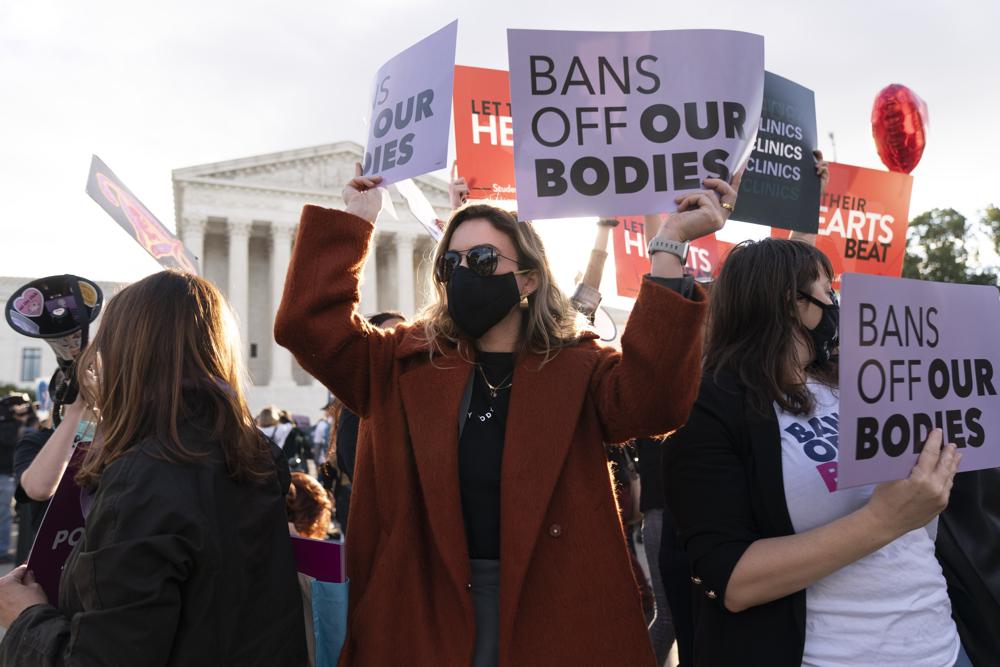
More than two weeks have passed since the Supreme Court’s extraordinarily rushed arguments over Texas’ unique abortion law without any word from the justices. They raised expectations of quick action by putting the case on a rarely used fast track. And yet, to date, the court’s silence means that women cannot get an abortion in Texas, the second-largest state, after about six weeks of pregnancy. That’s before some women know they’re pregnant and long before high court rulings dating to 1973 that allow states to ban abortion. There has been no signal on when the court might act and no formal timetable for reaching a decision. The law has been in effect since Sept. 1, and the court has been unable to muster five votes to stop it, said Mary Ziegler, a legal historian at Florida State University’s law school. “While there is some sense of urgency, some justices had more of a sense of urgency than others,” Ziegler said. Meanwhile, the justices are two weeks away from hearing arguments in another abortion case with potentially huge implications for abortion rights in the United States. The court will take up Mississippi’s call to overrule the two major Supreme Court rulings that, starting in 1973, have guaranteed a woman’s right to an abortion. The state law at issue bans abortions after 15 weeks, well before the point at which a fetus can survive outside the womb. Viability, typically around 24 weeks, has been the dividing line: Before it, states can regulate but not ban abortion. Even before the justices decide what to do about Mississippi’s law and the fate of Roe v. Wade and Planned Parenthood v. Casey, Texas’ law has effectively changed the standard, at least for the time being. It bans abortion after cardiac activity is detected in the fetus, usually around six weeks, and deputizes ordinary citizens to enforce the law in place of state officials who normally would do so. The law authorizes lawsuits against clinics, doctors, and anyone who “aids or abets” an abortion that is not permitted by law. It was designed to make federal court challenges difficult, if not impossible. Federal courts have had no trouble preventing other bans on abortion early in pregnancy from taking effect when they have relied on traditional enforcement. The Texas law is doing what its authors intended. In its first month of operation, a study published by researchers at the University of Texas found that the number of abortions statewide fell by 50% compared with September 2020. The study was based on data from 19 of the state’s 24 abortion clinics, according to the Texas Policy Evaluation Project. Texas residents who left the state seeking an abortion also have had to travel well beyond neighboring states, where clinics cannot keep up with the increase in patients from Texas, according to a separate study by the Guttmacher Institute. The Supreme Court is weighing complex issues in two challenges brought by abortion providers in Texas and the Biden administration. Those issues include who, if anyone, can sue over the law in federal court, the typical route for challenges to abortion restrictions, and whom to target with a court order that ostensibly tries to block the law. Under Supreme Court precedents, it’s not clear whether a federal court can restrain the actions of state court judges who would hear suits filed against abortion providers, court clerks who would be charged with accepting the filings, or anyone who might someday want to sue. People who sue typically have to target others who already have caused them harm, not those who might one day do so and not court officials who are just doing their jobs by docketing and adjudicating the cases. The justices’ history with the Texas law goes back to early September when, by a 5-4 vote, they declined to stop it from taking effect. At the time, five conservative justices, including the three appointees of President Donald Trump, voted to let the law take effect. Chief Justice John Roberts joined the court’s three liberals in dissent. The abortion providers had brought the issue to the court on an emergency basis. After they were rebuffed, the Justice Department stepped in with a suit of its own. U.S. District Judge Robert Pitman granted the Justice Department’s request for an order that put the law on hold. Pitman wrote in a 113-page ruling that the law denied women in Texas their constitutional right to an abortion, and he rejected the state’s arguments that federal courts shouldn’t intervene. But just two days later, the 5th U.S. Circuit Court of Appeals overrode Pitman and allowed the law to go back into effect. The Justice Department made its own emergency appeal to the Supreme Court. Rather than rule on that appeal, the court decided to hear the two suits just ten days later and without the benefit of an appellate court decision. At the arguments, two Trump appointees appeared to have doubts about the Texas law. Justices Amy Coney Barrett and Brett Kavanaugh questioned whether the law allowed people who are sued to air their constitutional claims in court and whether it would lead to a spate of copycat laws on abortion and other rights protected by the Constitution. The court seemed particularly concerned about the “chilling effect” similar laws would produce on other constitutional rights, including speech, religion, and gun possession, said Sarah Marshall Perry, a legal fellow at the Heritage Foundation. The court’s intervention has few counterparts in recent history, and those include Bush v. Gore, the fight over the publication of the government’s secret history of the Vietnam War known as the Pentagon Papers, and Richard Nixon’s effort to keep from handing over the Watergate tapes that ultimately doomed his presidency. The justices have never said why they opted to hear the Texas cases so quickly or how soon they might be decided. The time since the arguments is less than a blink of an eye in high-court terms, where months typically elapse between arguments and a decision. But the justices themselves created the expectation
Mental capacity at issue as Alabama man faces execution date
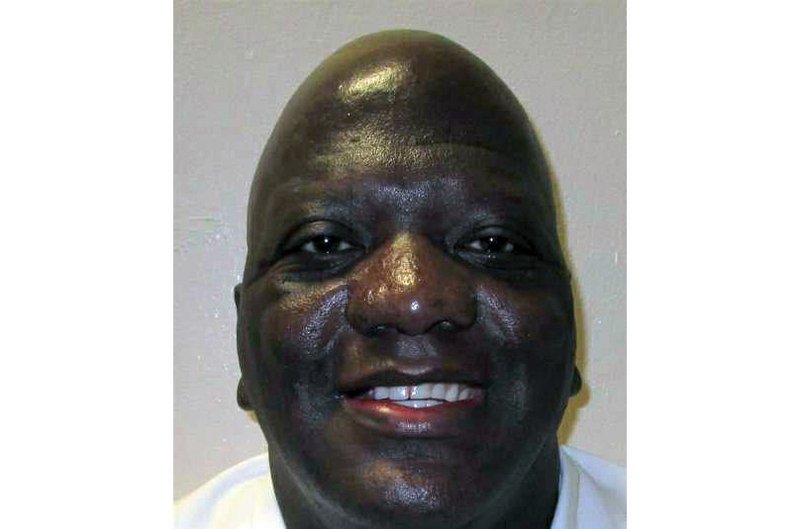
Federal judges heard arguments Wednesday about whether an Alabama inmate had the mental capacity to understand the paperwork setting up his planned execution next week, with a defense lawyer arguing the man’s cognitive deficiencies warranted disability assistance. The 11th U.S. Circuit Court of Appeals is considering an appeal by Willie B. Smith III, who was convicted of a woman’s 1991 kidnap and killing. His lawyer said the man has an IQ in the 70s and should have received help under the Americans with Disabilities Act to understand a form related to the selection of an execution method. Smith is scheduled to receive a lethal injection on October 21 in the death of Sharma Ruth Johnson, 22. Prosecutors said Smith abducted Johnson at gunpoint from an ATM in Birmingham, stole $80 from her, and then took her to a cemetery where he shot her in the back of the head. This is Alabama’s second attempt this year to carry out Smith’s death sentence. The state called off prior execution plans last February 12 after the U.S. Supreme Court maintained an injunction saying he could not be put to death without his pastor present. The reprieve came the same night of his scheduled lethal injection as he waited in a holding cell near the death chamber. The Americans with Disabilities Act of 1990, also known as ADA, prohibits discrimination based on disability. Smith’s attorneys argued a federal judge wrongly dismissed a lawsuit last month involving the claims about his needing assistance under the federal disabilities act. But the state maintained it was the legally correct decision. Wednesday’s oral arguments centered on what, if any, obligations the state had in helping state inmates understand a brief window in which they could change their requested execution method. “He will be executed by lethal injection in eight days if he does not prevail in this lawsuit,” attorney Spencer Hahn told the appellate panel Wednesday. “Mr. Smith had, and has, cognitive deficiencies such that he could not and can not make the decision to elect a method of execution without reasonable accommodation.” Lethal injection is the main execution method used in Alabama. But after lawmakers authorized nitrogen hypoxia as an execution method in 2018, the new law gave death row inmates a 30-day window to select nitrogen hypoxia as their execution method. The Federal Defenders for the Middle District of Alabama, who defend death row inmates but weren’t representing Smith at the time, drafted an election form for their clients to request nitrogen. The prison warden later gave every death row inmate a copy of the form. Smith did not turn in a form selecting nitrogen. The state has not developed a procedure for using nitrogen as an execution method, and at least for now, is not scheduling executions with nitrogen hypoxia. In dismissing the lawsuit last month, a judge said that the “form was not required, directed, or sanctioned” by state law and “for the entire month of June 2018, both before and after this form was distributed, Smith had the ability to opt into execution by nitrogen hypoxia through any writing he chose.” Smith’s attorneys in their appeal questioned how an “inmate who has been segregated and locked-down; 23 hours a day for almost 30 years with, at best, an IQ of 72 could have and should have known about a change in Alabama law.” Attorneys for the state have disputed that Smith is disabled. The state has argued that the form was not required by state law, and Smith never gave any indication that he wanted to request nitrogen. Smith also had a conversation with his then-lawyer in 2018 when the form was distributed, an attorney for the state told the judges. “The evidence is he talked to his lawyer in June: Nothing,” Alabama solicitor general Edmund G. LaCour told the panel. “He did have access to assistance. It’s plain as day.”
Judge orders Texas to suspend new law banning most abortions
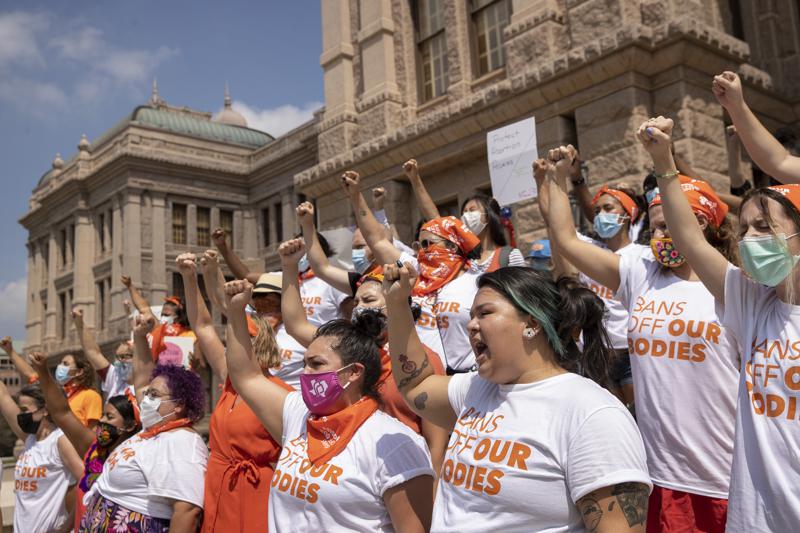
A federal judge on Wednesday ordered Texas to suspend the most restrictive abortion law in the U.S., which since September has banned most abortions in the nation’s second-most populous state. The order by U.S. District Judge Robert Pitman is the first legal blow to the Texas law known as Senate Bill 8, which until now had withstood a wave of early challenges. In the weeks since the restrictions took effect, Texas abortion providers say the impact has been “exactly what we feared.” In a 113-page opinion, Pitman took Texas to task over the law, saying Republicans lawmakers had “contrived an unprecedented and transparent statutory scheme” to deny patients their constitutional right to an abortion. “From the moment S.B. 8 went into effect, women have been unlawfully prevented from exercising control over their lives in ways that are protected by the Constitution,” Pitman wrote. “That other courts may find a way to avoid this conclusion is theirs to decide; this Court will not sanction one more day of this offensive deprivation of such an important right.” But even with the law on hold, abortion services in Texas may not instantly resume because doctors still fear that they could be sued without a more permanent legal decision. Texas officials are likely to seek a swift reversal from the 5th U.S. Circuit Court of Appeals, which previously allowed the restrictions to take effect. The law, signed by Republican Gov. Greg Abbott in May, prohibits abortions once cardiac activity is detected, which is usually around six weeks, before some women even know they are pregnant. To enforce the law, Texas deputized private citizens to file lawsuits against violators and has entitled them to at least $10,000 in damages if successful. The lawsuit was brought by the Biden administration, which has said the restrictions were enacted in defiance of the U.S. Constitution. The Biden administration argued that Texas has waged an attack on a woman’s constitutional right to abortion under the GOP-engineered restrictions, which took effect Sept. 1. “A state may not ban abortions at six weeks. Texas knew this, but it wanted a six-week ban anyway, so the state resorted to an unprecedented scheme of vigilante justice that was designed to scare abortion providers and others who might help women exercise their constitutional rights,” Justice Department attorney Brian Netter told the federal court Friday. Abortion providers say their fears have become reality in the short time the law has been in effect. Planned Parenthood says the number of patients from Texas at its clinics in the state decreased by nearly 80% in the two weeks after the law took effect. Some providers have said that Texas clinics are now in danger of closing while neighboring states struggle to keep up with a surge of patients who must drive hundreds of miles. Other women, they say, are being forced to carry pregnancies to term. Other states, mostly in the South, have passed similar laws that ban abortion within the early weeks of pregnancy, all of which judges have blocked. But Texas’ version has so far outmaneuvered the courts because it leaves enforcement to private citizens to file suits, not prosecutors, which critics say amounts to a bounty. “This is not some kind of vigilante scheme,” said Will Thompson, defending the law for the Texas Attorney General’s Office. “This is a scheme that uses the normal, lawful process of justice in Texas.” The Texas law is just one that has set up the biggest test of abortion rights in the U.S. in decades, and it is part of a broader push by Republicans nationwide to impose new restrictions on abortion. On Monday, the U.S. Supreme Court began a new term, which in December will include arguments in Mississippi’s bid to overturn 1973’s landmark Roe v. Wade decision guaranteeing a woman’s right to an abortion. Last month, the court did not rule on the constitutionality of the Texas law in allowing it to remain in place. But abortion providers took that 5-4 vote as an ominous sign about where the court might be heading on abortion after its conservative majority was fortified with three appointees of former President Donald Trump. Ahead of the new Supreme Court term, Planned Parenthood on Friday released a report saying that if Roe v. Wade were overturned, 26 states are primed to ban abortion. This year alone, nearly 600 abortion restrictions have been introduced in statehouses nationwide, with more than 90 becoming law, according to Planned Parenthood. Texas officials argued in court filings that even if the law were put on hold temporarily, providers could still face the threat of litigation over violations that might occur in the time between a permanent ruling. At least one Texas abortion provider has admitted to violating the law and been sued — but not by abortion opponents. Former attorneys in Illinois and Arkansas say they sued a San Antonio doctor in hopes of getting a judge who would invalidate the law. Republished with the permission of the Associated Press.
Joe Biden lifts abortion referral ban on family planning clinics
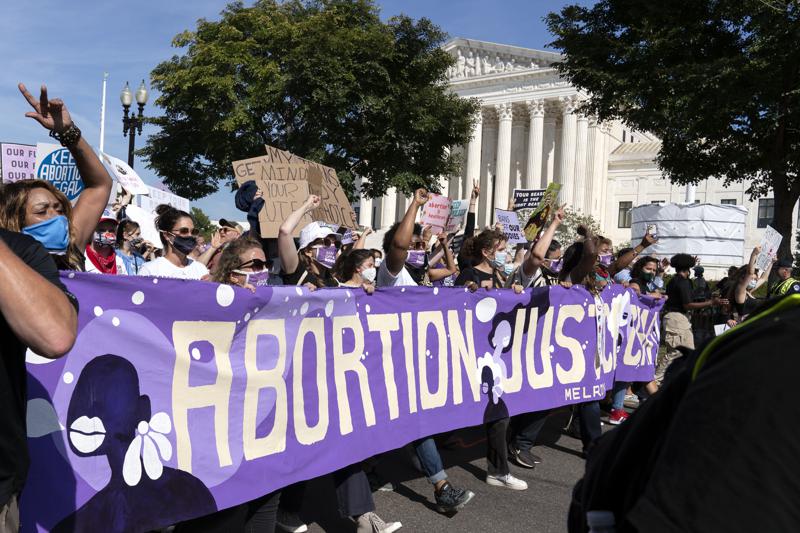
The Biden administration on Monday reversed a ban on abortion referrals by family planning clinics, lifting a Trump-era restriction as political and legal battles over abortion grow sharper from Texas to the U.S. Supreme Court. The Department of Health and Human Services said its new regulation will restore the federal family planning program to the way it ran under the Obama administration when clinics were able to refer women seeking abortions to a provider. The goal is to “strengthen and restore” services, said HHS Secretary Xavier Becerra. Groups representing the clinics said they hope the Biden administration action will lead some 1,300 local facilities that left in protest over Donald Trump’s policies to return, helping to stabilize a longstanding program shaken by the coronavirus pandemic on top of ideological battles. “I have heard that almost everywhere in the country people have made the decision that conditions will be good for them to return to the program,” Clare Coleman, president of the umbrella group National Family Planning & Reproductive Health Association, said in an interview. “My sense is that people have been waiting for the rule.” Planned Parenthood, the biggest service provider, said on Twitter its health centers look forward to returning. But the group criticized part of the Biden administration rule that allows individual clinicians who object to abortion not to provide referrals. The administration said that’s “in accordance with applicable federal law.” Known as Title X, the taxpayer-funded program makes available more than $250 million a year to clinics to provide birth control and basic health care services mainly to low-income women, many of them from minority communities. Under former President Donald Trump, clinics were barred from referring patients for abortions, prompting a mass exit by service providers affiliated with Planned Parenthood, as well as several states and other independent organizations. Women’s groups labeled the Trump policy a “gag rule,” and medical organizations called it a violation of the clinician-patient relationship. But religious and social conservatives praised the policy for imposing a strict separation between family planning services and abortion. Under federal law, clinics cannot use federal family planning money to pay for abortions. However, abortion opponents argue that birth control funding for organizations like Planned Parenthood, the leading provider of abortions, amounts to an indirect subsidy. On Monday, the National Right to Life Committee criticized the Biden administration for “supplementing the abortion industry through taxpayer funds.” Title X family planning clinics served about 3.9 million clients in 2018, but HHS estimates that number fell by nearly 40% after the Trump policy. The upheaval may have led to more than 180,000 unintended pregnancies, the agency said. In all, more than one-quarter of the clinics left the program. Although several states stepped up with their own no-strings-attached funding, women in some parts of the country still lost access. Combined with service disruptions due to COVID-19 shutdowns, “this has just been a massive one-two punch to the system,” said Coleman. Joe Biden campaigned on a promise to overturn the restrictions on family planning clinics, but abortion was not a central issue in the 2020 presidential race. It may become one in the 2022 midterm elections to determine who controls Congress. Restrictive state laws in Texas, Mississippi, and elsewhere have prompted a mobilization by abortion rights supporters, who fear a conservative-leaning Supreme Court will overturn the 1973 Roe v. Wade decision that legalized abortion nationally. Hundreds of abortion-themed protests were held around the country Saturday, including one that brought thousands of abortion rights supporters to the court’s steps. The Supreme Court has allowed the Texas law to take effect but has not ruled on the substantive legal questions behind that statute, which bans most abortions in the state. The justices will hear arguments on December 1 on the Mississippi law, which bans most abortions after 15 weeks of pregnancy. The court now tilts decidedly to the right after Trump appointed three conservative justices. Twelve states have passed laws that would ban abortion entirely if Roe is overturned. “Given the attacks on abortion in Texas and across the country, it’s more important than ever that patients can access their choice of birth control and other health care through Title X,” Planned Parenthood President Alexis McGill Johnson said in a statement. The new abortion referral policy for family planning clinics will take effect on November 8.
Providers urge Supreme Court to reject 15-week abortion ban
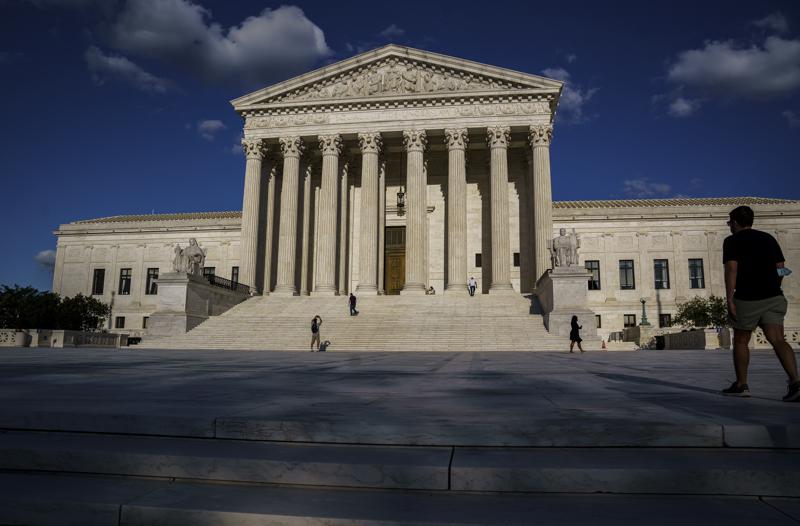
Abortion providers urged the Supreme Court Monday to reject Mississippi’s 15-week prohibition on most abortions, saying a decision to uphold it would “invite states to ban abortion entirely.” The filing with the high court comes at a time of significant peril for abortion rights in the U.S., with a Supreme Court reshaped by three conservative justices appointed by former President Donald Trump. Mississippi already has told the court it should overrule its 1973 decision in Roe v. Wade that established a nationwide right to abortion. Less than two weeks ago, the justices by a 5-4 vote allowed a Texas law to take effect that prohibits abortions once medical professionals can detect cardiac activity, usually around six weeks. The court did not rule on the merits of the law, which the Biden administration and Texas clinics have challenged in federal court. If the court upholds the Mississippi law, it would lead quickly to the elimination of abortion services in large sections of the Midwest and South, where states have aggressively pursued abortion restrictions, the providers told the court. Mississippi’s legal stance is “a request that the Court scuttle a half-century of precedent and invite states to ban abortion entirely,” the providers wrote. The change in the composition of the court appears to be driving the case to overturn Roe. The court had rejected state appeals of similar laws in the past. Of the Trump appointees, Justices Brett Kavanaugh and Amy Coney Barrett took seats previously held by Anthony Kennedy and Ruth Bader Ginsburg, justices who voted to uphold abortion rights. Kavanaugh once served as a law clerk to Kennedy. But the makeup of the court is not sufficient to justify a dramatic change in the law, the providers wrote. “Unless the Court is to be perceived as representing nothing more than the preferences of its current membership, it is critical that judicial protection hold firm absent the most dramatic and unexpected changes in law or fact,” the providers wrote. A day earlier, Barrett and Justice Stephen Breyer, the leader of the court’s diminished liberal wing, argued in separate appearances that it’s wrong to view the court in partisan terms. Barrett was among the conservative justices who allowed the Texas law to take effect. The Mississippi 15-week law was enacted in 2018 but was blocked after a federal court challenge. The state’s only abortion clinic, Jackson Women’s Health Organization, remains open and offers abortions up to 16 weeks of pregnancy. About 100 abortions a year are done after the 15th week, the providers said. More than 90% of abortions in the U.S. take place in the first 13 weeks of pregnancy, according to the Centers for Disease Control and Prevention. The state has said its law would not affect many women, but the providers countered by saying that argument “is at odds with the recognition of constitutional rights in general. The very essence of a constitutional right is that the government cannot outright prohibit a certain subset of people, no matter how small, from exercising that right.” The case hasn’t yet been scheduled for arguments, which could take place in the late fall or early winter. A decision is not expected until June, and the outcome could be an issue in next year’s state and congressional campaigns. Republished with the permission of the Associated Press.
Kay Ivey, 19 other GOP governors oppose Supreme Court expansion
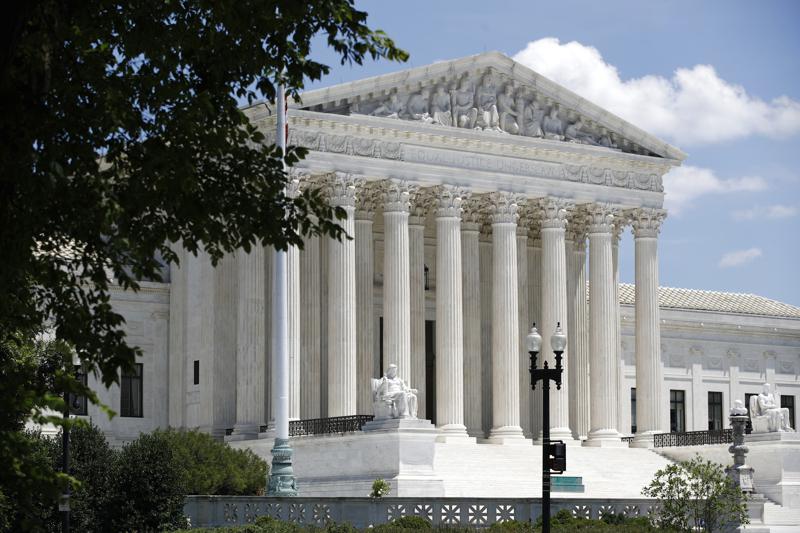
Alabama Gov. Kay Ivey and 19 other Republican governors on Tuesday sent a letter opposing any expansion of the number of justices on the U.S. Supreme Court, a longshot idea pushed by some congressional Democrats. The Republican Governors Association said the letter was sent to the Biden administration. “Historically, cases before the Supreme Court have served as the last legal defense of state sovereignty, protecting states and our citizens from federal overreach. As Governors, we have a vested interest in ensuring that our nation’s highest court remains independent and free from political pressure or partisan power grabs,” the letter signed by the 20 governors stated. Biden, facing pressure from activists, this spring created a bipartisan commission that will study the politically incendiary ideas of expanding the court and instituting term limits for justices, among other issues. Conservatives now hold a 6-3 majority on the court. Ivey said in a statement that she urged Joe Biden to “put down any partisan pressures and withdraw consideration from any proposal to pack the court.” Republican-led states expressing opposition to court expansion have sued the Biden administration, and the Obama administration before it, on a variety of issues, including healthcare and environmental matters. While the GOP governors criticized the effort they said would undercut the conservative majority, Alabama’s method of selecting appellate court judges has resulted in all-white and all-Republican courts. Alabama’s appellate judges run in statewide partisan elections, just like the governor, attorney general and other top officials. Alabama, like other southern states, was for a century essentially a one-party state controlled by Democrats, but shifted to Republican control as white voters switched to the GOP. The court is now all-Republican. Only two African-American judges have ever been elected to the Alabama Supreme Court. The NAACP and a group of Black voters sued Alabama over the method of electing judges, but a federal judge last year ruled that it was not racially discriminatory. Some governors have also expanded state courts. Republished with the permission of the Associated Press.
Injunction blocking abortion ban not appealed

Alabama’s near-total abortion ban will remain blocked by a federal judge as a lawsuit over the ban plays out in court. Alabama did not appeal the court injunction that blocked the state’s near-total abortion ban from taking effect last month, according to the attorney general’s office. The state has previously acknowledged the ban is likely unenforceable unless the U.S. Supreme Court makes a major shift on abortion rights. The preliminary injunction by U.S. District Judge Myron Thompson temporarily stopped the ban from taking effect Nov. 15 while he hears a lawsuit challenging the ban as unconstitutional. The 2019 law would make performing an abortion a felony in almost all cases. Alabama Attorney General Steve Marshall has said the state’s objective is to get the case to the U.S. Supreme Court to try to get justices to reconsider rulings such as Roe v. Wade and Planned Parenthood v. Casey. Roe legalized abortion nationwide. Casey affirmed abortion rights, but said that the states could enact limited restrictions. Mike Lewis, a spokesman for the attorney general, confirmed the state is not appealing the temporary injunction. “It will take time to develop a record in support of our arguments that Roe and Casey were wrongly decided and should be overruled. We hope to have a chance to build that record before any appeal. And for that reason, we have not appealed the preliminary injunction,” Lewis said. The appeal deadline was Nov. 29, according to Randall Marshall, executive director of the American Civil Liberties Union of Alabama. Alabama has acknowledged in court filings that its attempted abortion ban conflicts with current U.S. Supreme Court rulings that say abortion is legal. State lawyers wrote in a filing this summer that current precedent “regrettably requires” a judge to block enforcement. This story has been corrected to fix the name of the Supreme Court case. Republished with the Permission of the Associated Press.
Donald Trump nominates Judge Andrew Brasher to 11th Circuit Appeals Court
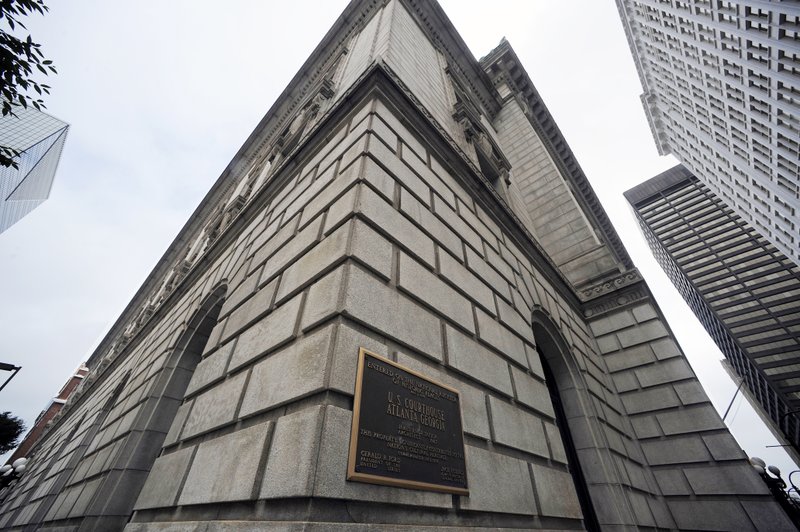
President Donald Trump on Wednesday nominated U.S. District Judge Andrew Brasher of Alabama to the 11th U.S. Circuit Court of Appeals. The nomination comes just six months after Brasher was seated on the federal bench in Alabama. The White House announced the nomination in a news release. Senators in May voted 52-47 to confirm Brasher as a federal district judge. Brasher was Alabama’s solicitor general’s office in the Alabama attorney general’s office before joining the bench. The position put him in charge of appellate cases and other notable litigation, including defending Alabama’s legislative redistricting plan and an attempt to require abortion doctors to have hospital admitting privileges. Some of that work was cited by The Leadership Conference on Civil and Human Rights and other groups earlier this year in opposing his nomination as a district judge. Brasher is a graduate of Harvard Law School. He served as a law clerk to Judge Bill Pryor of the 11th U.S. Circuit. Pryor is a former Alabama attorney general. “Judge Brasher distinguished himself as a legal scholar during his lengthy tenure as solicitor general of the State of Alabama, arguing and winning cases before the U.S. Supreme Court, the U.S. Court of Appeals for the 11th Circuit, and the Alabama Supreme Court,” Alabama Attorney General Steve Marshall said in a statement. Republished with the permission of the Associated Press.
State could pay over $1 million for blocked abortion law

Alabama might have to pay more than $1 million to lawyers for abortion clinics after the state’s unsuccessful attempt to ban a common second trimester abortion procedure. In a court filing last week, lawyers for abortion clinics said they will seek to recoup $1 million in legal fees and nearly $24,000 in expenses. Alabama is responsible for the plaintiffs’ fees after federal courts ruled the law unconstitutional. The 2016 Alabama law sought to ban the abortion procedure known as dilation and evacuation. Clinics filed a lawsuit and a judge ruled the ban unconstitutional. The U.S. Supreme Court in June refused to hear the state’s appeal. The lawsuit also successfully challenged a law blocking clinics near schools. An ongoing lawsuit is challenging Alabama’s attempt to ban abortion outright. Republished with permission of the Associated Press.
Alabama may agree to keep abortion ban on hold until 2020

Alabama indicated in a court filing that it might agree to keep the state’s new abortion ban on hold until 2020 to let a legal challenge play out in court. The law set to take effect in November would make performing an abortion a felony in most cases. Abortion providers have filed a lawsuit arguing the ban is unconstitutional. Attorneys for the state and abortion providers this week submitted a joint status report to a judge indicating the two sides would agree to delay the law if it’s not possible to resolve the case before November. The court filing said they would agree to a temporary restraining order until May 24, 2020 — a year from when the lawsuit was filed — to allow time to resolve the lawsuit. “Attorney General (Steve) Marshall agrees that, as suggested above, a temporary injunction would be appropriate to preserve the status quo,” the court filing stated. The court filing also indicated the state wants to obtain information from the opposing side although it was not clear what information it is seeking. Abortion rights groups say the ban is blatantly unconstitutional. Abortion providers also have asked for a preliminary injunction to keep the ban blocked until the case is decided.U.S. District Judge Myron Thompson gave the state until Aug. 5 to respond to that request.The Alabama law would make performing an abortion at any stage of pregnancy a felony punishable by up to 99 years or life in prison for the abortion provider. There would be few exceptions. Abortion rights groups say it is clearly unconstitutional. Emboldened by new conservatives on the U.S. Supreme Court, Alabama is part of a wave of conservative states seeking to mount new legal challenges to Roe v. Wade, the 1973 landmark Supreme Court decision that legalized abortion nationwide. Some supporters have acknowledged the ban will almost certainly be struck down by lower courts because Roe is controlling precedent, but they hope to spark a court case that might prompt the justices to revisit abortion rights. Republished with permission of the Associated Press.
J. Pepper Bryars: While the Supreme Court deliberates, Alabama should shine the light on asset forfeiture

The U.S. Supreme Court recently signaled that it’s ready to limit the government’s power to confiscate things like cars, houses, and cash that prosecutors have proven, or maybe just reasonably suspect, were involved in crimes. The court heard oral arguments related to Indiana’s use of the power, known as asset forfeiture, to confiscate a $42,000 vehicle — a value nearly four times the maximum fine for the underlying crime. Specifically, the court is looking at whether the state is subject to the Eighth Amendment’s ban on imposing excessive fines. But because the justices seemed so skeptical of asset forfeiture overall, some court watchers predict that while the impending ruling may not abolish the practice completely, it could have deep and wide-ranging impacts. Including here in Alabama. Our state’s asset forfeiture law has become increasingly controversial because it allows something called civil asset forfeiture, a maneuver in which law enforcement agencies legally seize assets based upon the mere suspicion of a crime. Yes, you read that right. Under state law, you don’t have to be charged or even convicted of a crime to have your property seized. Originally intended to cut off the cash flow of drug cartels, civil asset forfeiture is a practice that is independent of personal guilt or innocence. Instead, police charge or suspect your assets of being involved in a crime, and then take them. Civil asset forfeiture flips the innocent-until-proven-guilty mantra of the American judicial system because defendants must prove their innocence to get their property back. In the case that defendants decide to hire an attorney, the legal costs can rival the worth of the assets, making such attempts both prohibitively expensive and, at times, pointless. A coalition including the Alabama Policy Institute, the Heritage Foundation, and the Institute for Justice supported efforts to reform the law during the last legislative session. But as negotiations in Montgomery waded into the details and potential unintended consequences arose, time ran out and the bill failed. Why? “It’s a complicated issue,” explained the bill’s sponsor, Sen. Arthur Orr, R-Decatur, in an Al.com postmortem of the effort. Part of that complication lies in the delicate balance between liberty and order, and how much we’re willing to cede one for the other. That’s an age-old question and one that’s not easily resolved. Proponents of asset forfeiture contend it’s an effective tool for law enforcement and helps keep drug dealers off the streets. Critics believe it goes too far and might even create a perverse financial incentive for police departments to take property from those who cannot defend themselves in court. Both sides have valid points. Another complication lies in the inability to know exactly how asset forfeiture is being conducted in Alabama. Law enforcement officials say they process forfeitures ethically, while some critics believe it’s a shadowy and unaccountable practice. That, however, should be the simplest complication to settle. The recent reform bill called for the creation and maintenance of a publicly accessible database containing relevant asset forfeiture information – what agencies were involved, what assets were seized, their value, the existence of any underlying crimes, etc. Such transparency would not only build trust in the process, it would give both sides a common set of facts to discuss rather than rumors and disputed anecdotes. Still, opponents of a database point to the fact that asset forfeiture cases are already public record since they’re all handled in one of Alabama’s 41 circuit courts. That’s true, but that’s like telling concerned citizens to look for a needle in a haystack … or 41 haystacks, actually. We should expect more from our government when private property is being seized. Another objection is, of course, the cost of maintaining such a database. But if the purpose of seizing assets is to deprive criminals, or suspected criminals, of property used in the commission of crimes, and not as a method to fund their agencies, then shouldn’t they be okay with a portion of whatever is seized going to fund a database that would build trust in the system? Meanwhile, supporters and opponents of asset forfeiture are eagerly anticipating the court’s ruling in June. Regardless of the decision, Alabama’s asset forfeiture law should take a step in the right direction… and into the light. J. Pepper Bryars, author of American Warfighter, is a senior fellow at the Alabama Policy Institute. Follow him on Twitter at @jpepperbryars.
Alabama to enforce internet sales tax collections

Alabama will begin collecting online sales taxes on Oct. 1. The Alabama Department of Revenue announced the move in the wake of the U.S. Supreme Court decision last month that states can force online shoppers to pay sales tax. The state in 2016 established regulations that remote retailers with more than $250,000 in sales in Alabama should pay tax in the state. However, the constitutionality of the rule had been in question until the Supreme Court decision. The Department of Revenue said the regulation will be enforced going forward. A number of online retailers, including Amazon, already remit taxes to the state through the Alabama Simplified Sellers Use Tax. The program allows companies to pay a flat 8 percent sales tax, instead of navigating different county and city tax rates. Republished with the permission of the Associated Press.

